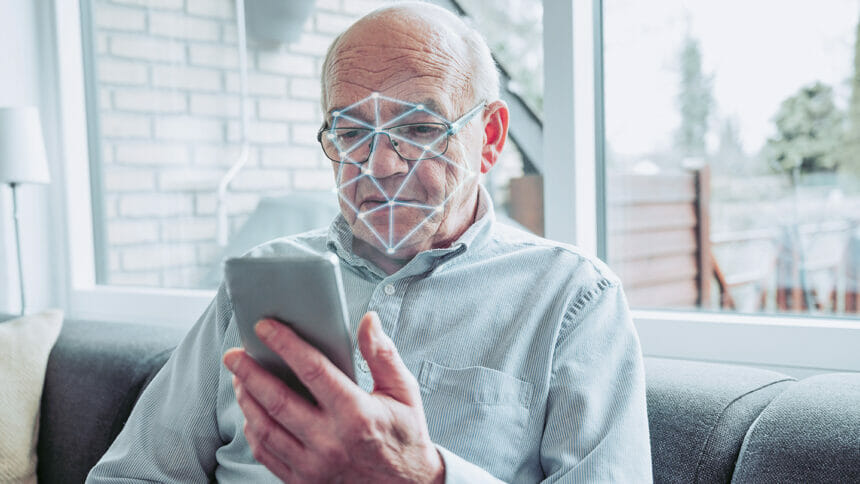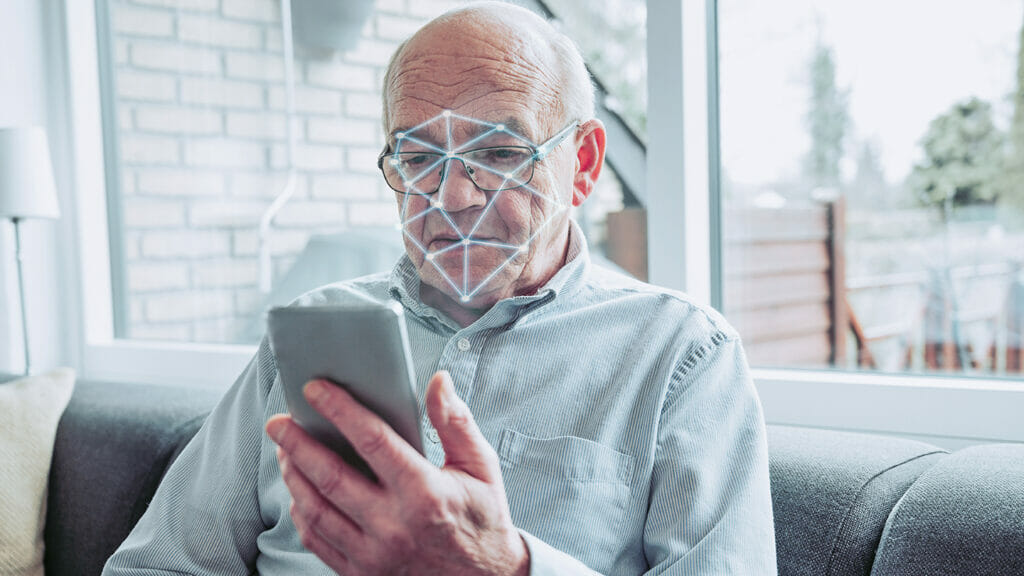

Many older adults may nostalgically remember watching home videos of family outings that were recorded on actual film stock.
Now, there may be a new audience for home video footage: artificial intelligence.
AI systems can evaluate footage of people walking to diagnose Parkinson’s disease in less than 30 minutes, researchers said. The videos can be uploaded easily via smartphone apps to capture and transmit the footage.
The AI tool can detect subtle signs of gait freezing and aid in diagnosing the disease to enable earlier intervention and treatment, the developers said. It’s important to identify Parkinson’s early on, the researchers noted, because symptoms can progress rapidly or be debilitating without medication and treatment options.
Such AI diagnostic systems could allow senior living and care residents to be evaluated for Parkinson’s without needing to go to a specialist. The video tool is especially useful for those living in rural or underserved areas, the researchers said, and the system soon could be part of telemedicine practices.
One million people in the United States have Parkinson’s disease, a number that’s expected to rise to 1.2 million by 2030; 25% of people living with Parkinson’s currently live in a long-term care facility such as an assisted living community or nursing home, according to the Michael J. Fox Foundation for Parkinson’s Research.
A recent comprehensive study about using AI video-based monitoring corroborated the value of such systems, with some important caveats.
Currently, AI still is subject to challenges related to video quality, training data “noise” and any issues around privacy compliance, the researchers said.
“Ultimately, the advancement of video monitoring for movement disorders is expected to evolve toward discreet evaluations during routine daily activities,” the study authors wrote. “This progression must incorporate data security, ethical considerations and adherence to regulatory standards.”
The need for better diagnostics for Parkinson’s is especially important because even when older adults receive diagnoses from expert neurologists, accuracy in picking up the condition is just 80%, the researchers said.
The gait-freezing video analysis tool was created by experts at China Medical University Hospital in Taiwan.


